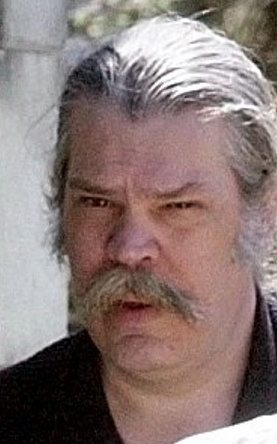AUGUSTA — A man who assaulted four nuns in 1996, killing two, has been denied permission to move into a supervised apartment in downtown Augusta.
Earlier this month, Justice Robert Mullen denied the request by Mark Bechard, who was committed to a state psychiatric hospital after he was found not criminally responsible on two counts of murder for the attack at Servants of the Blessed Sacrament chapel in Waterville. Bechard wanted to move from a group home on Glenridge Drive in Augusta to a 10-unit apartment building on Commercial Street where residents are supervised by at least two people at all times.
Mullen agreed with Anne LeBlanc, director of the State Forensic Service, who testified at a May 24 hearing that high turnover of Bechard’s treatment team staff had left the team in “disarray” and that those workers wouldn’t know Bechard well enough to recognize any deterioration in his mental health.
Bechard will remain living at the Glenridge Drive group home, which is near the state-run Riverview Psychiatric Center.
Bechard, 37 at the time, was suffering a psychotic episode when he entered through the chapel and attacked the four nuns, killing Mother Superior Edna Mary Cardozo and Sister Marie Julien Fortin, authorities say.
Sister Patricia Ann Keane survived the attack but died later from her injuries. Sister Mary Anna DiGiacomo, who was paralyzed on her right side, died in 2006.
Mullen wrote in his decision this month that he “finds that there simply is no substitute for a person developing a relationship” with a patient, which takes time.
“It is a fact that (Bechard’s) level of suspiciousness and distrust of others can minimize his ability to come forward and bring issues that (he) may be experiencing to his treatment providers,” he wrote.
Mullen wrote it was impossible for him “to recall a more horrific set of circumstances than those that occurred on Jan. 27, 1996, in Waterville, Maine. They cannot, and will not, ever be forgotten”
LeBlanc had testified that Bechard has had at least three psychiatric care providers since she last evaluated him in January; didn’t know who his case manager was at that time; doesn’t have a nurse practitioner assigned to his care team; and is going to get a new intensive case manager and a new psychiatrist later this year because the men currently in those roles are leaving. She said the people coming into those roles might be highly talented, caring professionals, but they don’t know Bechard well.
Harold Hainke, Bechard’s attorney, had argued that Bechard’s mental health is at a high-functioning level, he regularly takes his medications, his treatment team is well-informed, and he would benefit from the move from the group home to a quieter, more private apartment. Also, he said, Bechard would have regular interaction with staff members capable of noticing any deterioration of his mental health. He said there is no way of ensuring there won’t be more staff changes among those overseeing Bechard’s care and it would be unfair to make him remain in the group home waiting for the staff to be stabilized, something he has no control over.
LeBlanc, who evaluated Bechard in January and has known him since 1996, agreed he has been reliable in taking his anti-psychosis medications, has done nothing to cause concern to community members and could benefit from moving from a group home to an apartment in a supervised building. But she remained concerned about the stability of his treatment team.
Keith Edwards can be contacted at 621-5647 or at:
kedwards@centralmaine.com
Send questions/comments to the editors.





Success. Please wait for the page to reload. If the page does not reload within 5 seconds, please refresh the page.
Enter your email and password to access comments.
Hi, to comment on stories you must . This profile is in addition to your subscription and website login.
Already have a commenting profile? .
Invalid username/password.
Please check your email to confirm and complete your registration.
Only subscribers are eligible to post comments. Please subscribe or login first for digital access. Here’s why.
Use the form below to reset your password. When you've submitted your account email, we will send an email with a reset code.